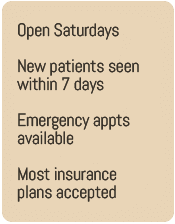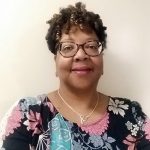Crystal Schulze Discusses Her Cancer Diagnosis and Treatment
What was your diagnosis, and when were you diagnosed?
I was diagnosed with stage four follicular lymphoma in June of 2015, and I have not worked since the treatment. Technically, I could still go back to American Airlines.
What did you do for American Airlines?
I worked for reservations, and it was very painstaking. My husband and I were looking for the right place to live, the right area for internet signal because I worked at home. Reservations at home is like working at a call center: eight to ten hours a day, using the bathroom on your break. This could have led to me not realizing I was sick.
With the stress and the hoops of moving, I had put off going to the doctor. I might have been able to catch it before it went into stage four. I had noticed the lymph nodes in my neck were swollen, and I’m usually more in tune with my body quite frankly. I don’t push around not going to the doctor. She said it was slow growing, so I could have probably had it treated.
What made you decide to go to the doctor?
The lymph nodes in my neck. There was swelling that wasn’t going away. When I went to my general practitioner, she felt my neck and said, “these aren’t normal.” She’s known me for thirty years and been my doctor for years.
She sent me for a PET scan at REX hospital. They were supposed to do a biopsy as well, but they let that slip. The radiology department gave my doctor the results of the PET scan. They said there were hot spots all over my body and at that point they didn’t know what it was. Dr. Castillos was the one who gave the diagnosis because he had the microbiology report.
Where did you get your biopsy?
Dr. Castillos did the bone marrow biopsy at his office.
What were your first thoughts when you were starting to realize that you had cancer?
I trusted my doctor with sending me to someone who was trusted. As soon as I found out it was in my lymphatic system, she wanted to send me to a hematologist and an oncologist. Since Dr. Castillos is in a practice by himself, my doctor felt I would get better, dedicated care. His office is also named “Personalized Hematology-Oncology.”
When Dr. Castillos started explaining my condition, I had a better knowledge. He was not just a general doctor; he was one who dealt with bloodborne diseases. And again, I knew I was going to the right place.
How did you choose to share your diagnosis with your family and friends?
My husband was in bed with me when I got the call. I told my daughter and let my brother know. I started letting some of my neighbors know too, and they understood. They have been very supportive. After chemo sometimes, I would be so tired I couldn’t go to events. They would say, “oh, that’s ok. We know you’re doing chemotherapy.”
To be honest with you, when people start talking about getting a second opinion, I mention Dr. Castillos even though he’s in Wake Forest, and we’re in Clayton.
Can you tell us more about your course of treatment? How long were you in the process?
To be honest with you, mine was probably a little different.
My first treatment was in the office. I’m a retired state employee, and the state of North Carolina was not cooperative in paying the bill. My chemo was very expensive.
With my treatment, I would have Rituximab and Bendamustine on the first day and on the second day do another set of Rituximab. The first treatment was in Dr.Castillos’ office. Then when the state plan became problematic and I also had a reaction, he decided I would need to have it done in the hospital for my ease and safety. Dr. Castillos didn’t want to delay my treatment because of the insurance. For the next five months, I would go to WakeMed for three days for more than 48 hours so that it would be covered by insurance.
I had more insurance problems than anything else. I even had some of the bills bounce back on me a year later. Dr. Castillos would always put me in the hospital on Tuesday, Wednesday and Thursday, and that was cool because those were the days he was working in the ER. It worked out really well for me; he would come up and check on me after working his shifts in the ER. Long story short, that made things a lot easier.
Did you feel like there were any other things you could have turned to or didn’t have at the time?
The system. For the baby boomers, which me and most of my neighbors are, it seems like the rate of cancer is going up. There aren’t resources out there to help us.
What kind of resources would you like to see?
I needed help with my co-pay. That would have helped.
My co-pay was almost $100, and I going in twice a week. I had to go in and have my blood checked. During chemo, my white cell count went through the toilet. It was dangerously low to the point where I could end up in the hospital. I knew to isolate myself and stay away from the general public. I needed to do this because I knew my white blood cell count would be less than 1,000, and I could get sick. I knew better.
But that’s what I’m saying, I would go in to see Dr. Castillos and have my white blood cells checked – $85.
Every time I turned around: $85, $85, $85 … I didn’t have an income so where was that money coming from – a money tree?
I didn’t have a relative I could borrow it from, and I just bought a house. You’re supposed to have with the state health plans these minimums, but you still have to pay the co-pay. If you meet your minimum for the year, you still have to start over at the beginning of the year.
… I’m glad Dr. Castillos has a small practice. Not having to be around so many other people limited my exposure. With my white blood cell count being that low, I’m glad I never got sick. I missed a lot because I could not spend time with my three-year-old grandson at all.
When was your last chemo treatment?
The first week of January. I have to wait until July to see if I’m in full remission.
Since you’re not currently working, what are you doing on your average day?
I take care of the house, and on the drives back and forth from Dr. Castillo’s office, I listen to Dave Ramsey – the radio station for Knightdale. There was a radio program on there where they talked about day trading, and I have actually done it during chemo.
Now, you’re at the end of your treatment. Is there anything you would have done differently in hindsight?
I had one filling in my mouth before chemo started, and now I only have one tooth without a cavity in it. I went to the dentist because I noticed my teeth were getting darker, and I had four or five cavities. Each visit after it kept snowballing. The dentist is now talking about pulling my teeth, and I have six root canals. I took very good care of my teeth, and this isn’t something they tell you about.
The only infection I’ve had in the past three years are these teeth. The dentist sees it a lot. It has to do with your saliva glands and how your saliva becomes more acidic during chemo. Another thing I would have done differently is getting my knee replaced. My orthopedic doctor won’t let me get it replaced until my teeth are fixed.
For my particular cancer, I found a group on Facebook. They’re going through similar experiences.
What words of wisdom or advice would you give another person who has been given a similar diagnosis?
I would encourage them to not neglect their care. Make sure they go to their dentist and other doctors because that’s important. I would make sure because there are other factors in chemo that are problematic. Make sure you follow what the doctor says; don’t neglect it.
And bring your family and friends into your care because you need their support. Make sure to share too because you’ll need their comfort and care. My neighbor is going to go through chemo for the rest of her life, and we go on a walk every time she feels good. We’re supporting each other.





